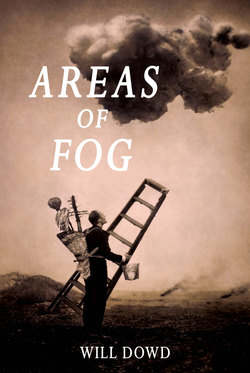Читать книгу Areas of Fog - Will Dowd - Страница 19
ОглавлениеTHEY SAY MARCH comes in like a lion, and this year they’re right. We had a whiteout last Wednesday (I skidded home in four-wheel drive on a tread of Hail Marys), then a Nor’easter that never materialized (some believe it’s still out there, biding its time), and finally temperatures so unseasonably, unreasonably cold that everyone in the Greater Boston area, fearing winter might be permanent, scurried around in a state of near panic, as if a lion had cleared the fence at Franklin Park Zoo and begun picking off pedestrians one by one.
But then things changed.
This morning, the sun remembered to bring actual warmth with it. There was an ocean smell on the wind. A couple of hawks, back from the Florida Keys, rolled around in the bright wind, scanning backyards for a Pekingese let out to pee. I heard a sound that was strange yet somehow familiar, like the looped melancholy tones of a long-forgotten arcade game. It was birdsong.
Most critically, it was a few degrees warmer. That doesn’t sound like much, but a few degrees can hinge a season just as surely as it can unhinge a mind.
Earlier this week, I ran a low-grade fever. The slight change to my microclimate altered the landscape around me with frightening, hallucinatory efficiency.
“[H]ow astonishing,” Virginia Woolf wrote, “when the lights of health go down, the undiscovered countries that are then disclosed, what wastes and deserts of the soul a slight attack of influenza brings to view, what precipices and lawns sprinkled with bright flowers a little rise of temperature reveals.”
Woolf would know. She suffered her whole life from mysterious, unexplained fevers. She would lie in bed and listen to the sparrows speaking in Greek outside her window.
Her diary, which is full of gaps, tracks her periods of convalescence like a thermometer. In the most moving entries, she resurfaces from her sickbed, laments how much time she has lost, and resolves to pick up the thread of her novel-in-progress.
It’s probably a sacrilege, but I prefer Woolf’s twenty-six-year diary to her novels. She was a diligent chronicler of her own life, jotting down anything, everything. The only experience she would not describe in her diary, she told a friend, was her own death.
Naturally, the diary is full of weather.
Here she is in January: “All frost. Still frost. Burning white. Burning blue.” And in June: “Perfect summer weather. It’s like an invalid who can look up and take a cup of tea.” And in September: “Hot weather; a wind blowing. The substance gone out of everything.”
Even in her last entry, Woolf was careful to note the “curious sea side feeling in the air today.”
A few days later she filled her pockets with stones and walked into the River Ouse.
It was March.
